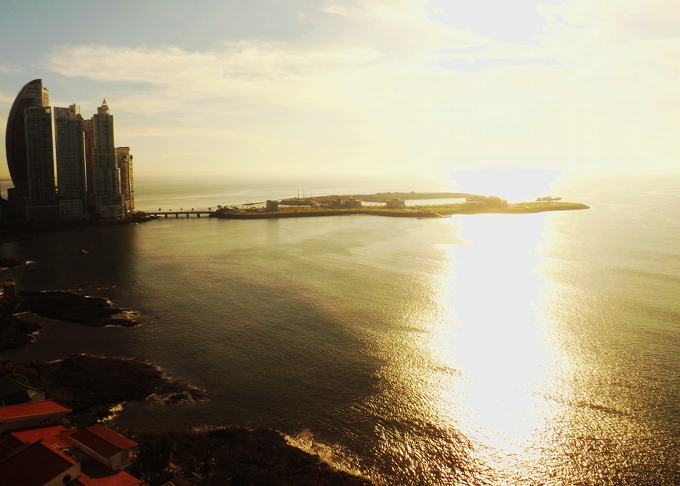
Panama and Donald Trump
by Marco A. Gandásegui, hijo
Panama and the United States have had a difficult relationship for more than a century and a half. To an increasing extent the Isthmus of Panama was turned into a fundamental piece in the expansion plans of North American capitalists. The construction of the trans-isthmian railroad (1850-1855) and the Panama Canal (1904-1914) were strategic in the consolidation of an empire that extended over a continent and into the Atlantic and Pacific oceans. Later Panama was turned into an enormous military base for the US wars against Japan (1941-1945) and later, Korea and Vietnam (1951-1975). The bases of the old Canal Zone also served to intervene in and invade all of the countries of Latin America, turning it into the US “back yard.”
Over the course of more than 175 years Panama has done battle with dozens of governments and their executives. The cousins Teddy and Franklin Roosevelt, the Bushes (father and son), Jimmy Carter and Ronald Reagan are some of the best remembered, for good and bad. Presidents of the United States have masterminded invasions, coups d’etat, assassination conspiracies and mockeries of the Panamanian people.
The US president-elect, Donald Trump, appears on the horizon as a novel and unpredictable political phenomenon. For the financial world the businessman is a question mark — his rhetoric against the misnamed “free trade” has shaken stock markets on all continents. President Juan Carlos Varela, answering a question about Trump’s election, failed to come up with a coherent answer. The Panamanian government still has no policy to deal with the next White House tenant.
Washington has had a very clear policy about Panama since the 1989 invasion. How to collate this US position on Panama with Trump’s ideas? It is a question whose answer we will come to know, as they begin to square (if they fit) the foreign policy objectives of the new administration.
US foreign policy has had three objectives in Panama since the 1989 invasion. First, to assure that traffic through the canal is not interrupted. Second, for Panama to serve as a launching pad for its militaristic policy on the regional level. At the same time this is useful in its “War on Drugs” policy. Finally, for Panama to develop along the neo-liberal guidelines of “the Washington Consensus” that were specified in the free trade treaty that was signed by both countries. Politically, the United States has delegated the responsibility to govern the country to a small Panamanian elite. That elite has done very poorly, speculating with the extraordinary income that running the Panama Canal generates, running up a growing debt and destabilizing the political regime with a growing corruption that’s a product of militarization. In 20 years they have ruined agriculture and industry, destroyed the health and education systems and allowed the system of representative government to fall into the hands of an insatiable mafia.
President-elect Donald Trump has no personal interests in Panama, only his name on one of the hotel towers that adorn’s the capital’s skyline. Five years ago Trump did opine about the Panama Canal and the way that the 1977 negotiations that allowed its turnover to the Panamanian government turned out.
In a 2011 business visit to Panama City, Trump said that “Panama is doing very well with the canal, there are so many workers, there is so much employment — to think that the United States stupidly gave up the canal in exchange for nothing.” Trump does no more than to insistently repeat what President Reagan said after the Torrijos-Carter treaties were signed in 1977 until the day he died. A Panamanian government minister predicted (with great skill) in 2011 that what Trump intended with his statements was to launch his candidacy for the presidency of his country. Incidentally, the city council declared him persona non grata for those remarks.
Following the logic of his campaign, Trump could ask Panama to contribute part of its income, based on canal tolls, to the “War on Drugs” (increasing arms purchases from the United States, building more air and naval bases with US materials and training more repressive forces at the still-existing School of the Americas. He could also demand that Panama eliminate its few remaining tariffs so as to inundate its market with imported farm products, definitively destroying Panamanian agriculture.
~ ~ ~
These announcements are interactive. Click on them for more information.










